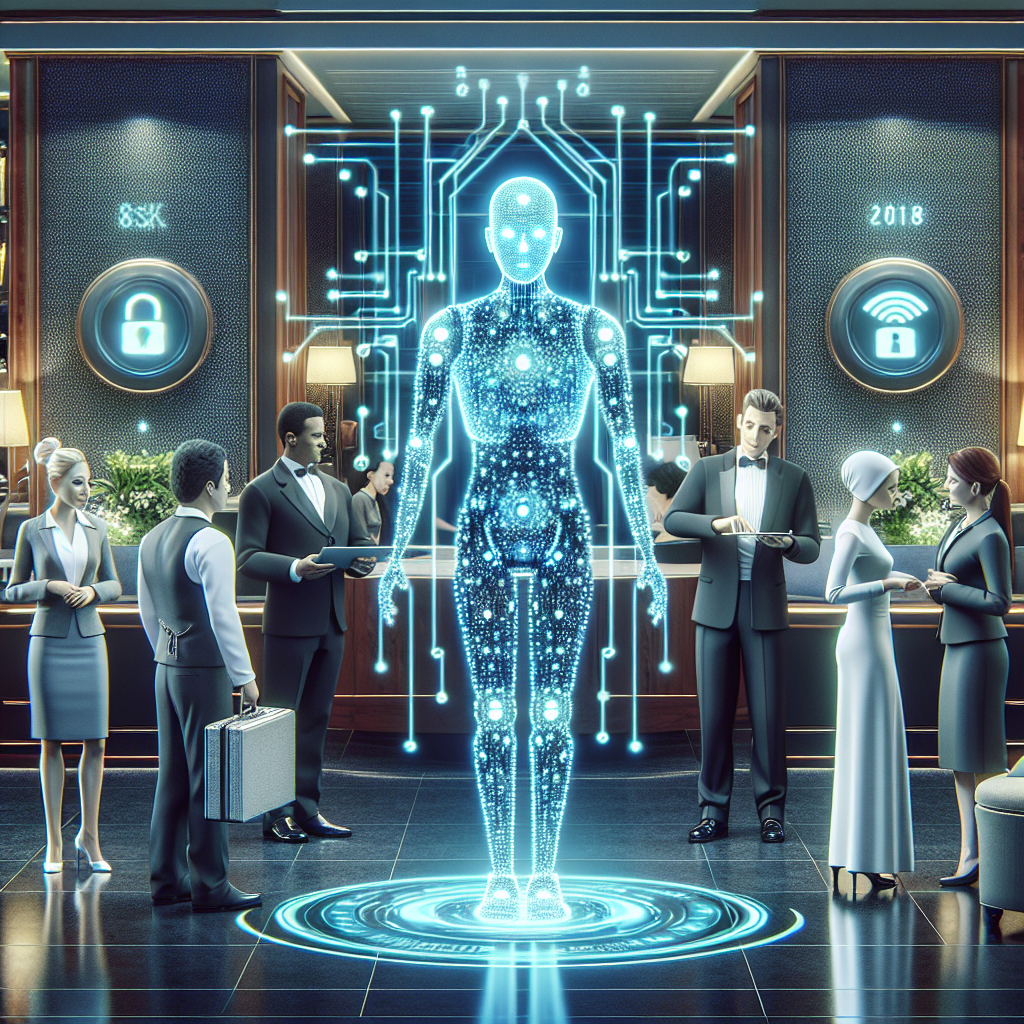The hospitality industry is constantly evolving, with new technologies being implemented to enhance the guest experience. One of the most significant advancements in recent years is the integration of artificial intelligence (AI) to improve security and safety measures in hotels, resorts, and other hospitality establishments.
AI has the potential to revolutionize the way security and safety are managed in the hospitality industry. By leveraging AI-powered tools and systems, hotels can enhance their ability to detect and prevent security threats, respond quickly to emergencies, and provide a safer environment for guests and staff.
Enhancing Security and Safety with AI in the Hospitality Industry
1. AI-powered surveillance systems
One of the most common applications of AI in the hospitality industry is the use of AI-powered surveillance systems. These systems use advanced algorithms to analyze video footage in real-time, enabling them to detect suspicious behavior, identify potential threats, and alert security personnel to take action.
AI-powered surveillance systems can also be used to monitor key areas of a hotel, such as entrances, lobbies, parking lots, and guest rooms. By analyzing patterns and anomalies in the data, these systems can help prevent theft, vandalism, and other security breaches before they occur.
2. Facial recognition technology
Another way AI is enhancing security in the hospitality industry is through the use of facial recognition technology. This technology allows hotels to identify guests and staff members quickly and accurately, enabling them to control access to restricted areas and track the movements of individuals within the premises.
Facial recognition technology can also be used to enhance guest experience by providing personalized services, such as automated check-in and room access, based on the guest’s identity.
3. AI-powered chatbots
AI-powered chatbots are another valuable tool for enhancing security and safety in the hospitality industry. These chatbots can be used to provide real-time information and assistance to guests, such as emergency contacts, local safety tips, and evacuation procedures.
Chatbots can also be programmed to respond to security threats and emergencies, providing guests with immediate support and guidance until help arrives.
4. Predictive analytics
AI-powered predictive analytics can also play a crucial role in enhancing security and safety in the hospitality industry. By analyzing historical data and patterns, these systems can predict potential security risks and help hotels take proactive measures to prevent them.
For example, predictive analytics can be used to forecast peak times for security incidents, enabling hotels to allocate resources more effectively and reduce the likelihood of a breach.
5. AI-powered robots
AI-powered robots are another innovative technology that can enhance security and safety in the hospitality industry. These robots can be used to patrol hotel premises, monitor security cameras, and respond to emergencies, providing an additional layer of protection for guests and staff.
AI-powered robots can also be equipped with sensors and cameras to detect potential hazards, such as fires, gas leaks, or intruders, and alert security personnel to take action.
FAQs
Q: How does AI improve security in hotels?
A: AI improves security in hotels by using advanced algorithms to analyze data in real-time, detect suspicious behavior, identify potential threats, and alert security personnel to take action.
Q: What are the benefits of using facial recognition technology in hotels?
A: Facial recognition technology in hotels helps to control access to restricted areas, track the movements of individuals within the premises, and provide personalized services to guests, such as automated check-in and room access.
Q: How can AI-powered chatbots enhance security and safety in hotels?
A: AI-powered chatbots can provide real-time information and assistance to guests, respond to security threats and emergencies, and help hotels communicate important safety information to guests.
Q: What is predictive analytics, and how does it improve security in hotels?
A: Predictive analytics uses historical data and patterns to forecast potential security risks and help hotels take proactive measures to prevent them, such as allocating resources more effectively and reducing the likelihood of a breach.
Q: How do AI-powered robots enhance security and safety in hotels?
A: AI-powered robots can patrol hotel premises, monitor security cameras, respond to emergencies, detect potential hazards, and alert security personnel to take action, providing an additional layer of protection for guests and staff.
In conclusion, AI has the potential to revolutionize security and safety in the hospitality industry. By leveraging AI-powered tools and systems, hotels can enhance their ability to detect and prevent security threats, respond quickly to emergencies, and provide a safer environment for guests and staff. As technology continues to advance, we can expect to see even more innovative applications of AI in the hospitality industry to further enhance security and safety measures.

